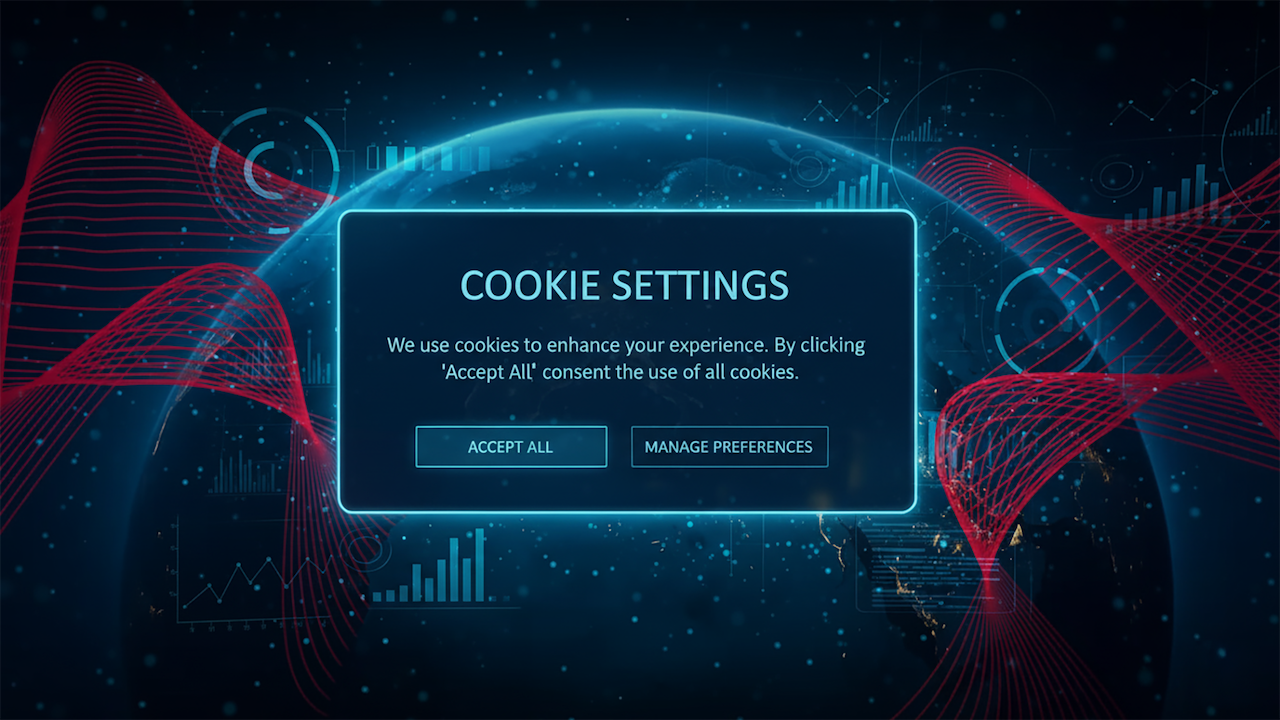Why good consent management really boosts your marketing
‘Cookie banners’ are a topic that often triggers controversial discussions in online marketing. You see them everywhere, in a wide variety of forms and designs, and sometimes it seems as if every company is pursuing its own unique approach. This is hardly surprising, as the requirements and best practices surrounding consent management are complex, constantly changing and, for many, a real balancing act. But while the legal requirements are often at the forefront, it is sometimes overlooked how crucial good, cleanly implemented consent management is for actual marketing performance.
Why consent banners are not just ‘cookie banners’
Before we go into detail, let's clear up a common misunderstanding: a consent banner, or consent management platform (CMP), is much more than just a tool for asking users for permission to use cookies. The term ‘cookie banner’ falls far short of the mark. In fact, it's about much more than just consent to set cookies.
Above all, a CMP also obtains consent for the processing of personal data. This applies in particular to tracking and analysis tools that are used for advertising purposes or reach analysis. It also regulates consent for the transfer of data to third parties, for example to advertising networks and, if necessary, to recipients in third countries. In short, a CMP covers much more than just cookies.
More than just a legal requirement
Well-implemented consent management is not only a legal necessity, but also a crucial performance factor. In fact, the CMP is often the first thing a user sees when they visit your website. And that first impression counts. If users can make a clear, transparent choice right from the start about whether and how they give their consent, they build trust from the outset.
This trust is not only the basis for you to be able to serve personalised advertising in the first place, but it also ensures that the overall data quality is correct. If consent is obtained cleanly, the tracking tags will also work exactly as they should. This means that you not only collect data, but also obtain truly reliable and high-quality data.
Ultimately, this leads to significantly more accurate measurement and analysis. You can better understand the customer journey, optimise your campaigns more precisely and ultimately achieve better results. In short, good consent management lays the foundation for your marketing performance to not only be legally secure, but also based on trust that pays off in the long term.
Why is CMP important for your marketing?
- Data quality and personalisation: Only when users give their consent can you use their data for personalised advertising. This means that your campaigns are targeted at the right audiences and you achieve better results. In addition, features such as remarketing or lookalike audiences only work optimally if the database is correct.
- Measurability and customer journeys: Another crucial point is measurability across the entire customer journey. With clean consent, you can track your customers' journey from the first interaction to the purchase. This allows you to optimise your campaigns even more precisely and really understand which touchpoints have the greatest impact. Without clean consent, you often lack important data points to fully map this journey.
- User expectations and trust: Transparent and user-friendly consent management shows that you respect your users' privacy. This, in turn, makes users more willing to give you their consent, which also increases your marketing performance in the long term. And when users see that you are honest with their data, their trust in your brand also increases.
- Stable marketing functions: Many advertising platforms now require that consent be obtained correctly. With a solid CMP, you can ensure that tracking and personalisation work smoothly and that you don't lose valuable data. This means that your marketing campaigns run smoothly and deliver reliable results.
- Legal requirements: Of course, the legal side also plays a role. With a CMP, you can ensure that you comply with the requirements of the GDPR and other data protection laws, such as the TDDDG. This not only protects you from possible fines, but also ensures that your marketing activities are legally compliant.
- Contractual requirements of advertising platforms: Another important aspect is the contractual requirements imposed by many large advertising platforms. These platforms expect you, as an advertiser, to obtain user consent on their behalf before tracking and personalised advertising can take place. This means that a correctly implemented CMP not only legally but also contractually ensures that you comply with the guidelines of your advertising partners. This allows you to avoid potential bans or restrictions on your advertising accounts and ensures that your campaigns can run smoothly.
Proper implementation is key
It is not enough to simply have a CMP. It must also be implemented correctly in order to function properly. For example, if tracking tags are built into your tag manager but the interaction between the tag manager and the CMP does not work properly, problems can arise.
In concrete terms, this means that if the CMP does not correctly inform the tag manager whether and which consents are available, tracking scripts could be triggered either too early or not at all. This leads either to data loss or, in the worst case, to unauthorised data collection if data is collected without valid consent. Both can compromise the quality of your marketing data and entail legal risks.
It is also important that the services and purposes selected in the CMP actually match the tools configured in the tag manager. For example, if a specific analysis tool is activated in the CMP but is configured differently or not at all in the tag manager, inconsistencies will arise. Similarly, the information in your privacy policy or cookie policy must match the actual implementation. Otherwise, users may consent, but the data processing may actually differ from what is described.
In short: technical and content consistency between the CMP, tag manager and privacy policy is crucial. This is the only way to ensure that your marketing performance is not only legally sound, but also delivers the best possible data quality. This increases the accuracy of your analyses and ultimately the success of your campaigns.
Dos and don'ts for successful consent management
Finally, here are a few practical tips on what to look out for in your CMP:
Do's:
- Fair choice: Clear yes/no consent option already in the first layer; ‘Reject’ equivalent to ‘Accept’ (position, size, contrast).
- Layered approach: Use a multi-level approach to first give users simple choice options and then allow more detailed settings if necessary.
- List service providers: Clearly show which third-party services receive data so that users know to whom and for what purpose they are giving their consent.
- Ensure technical correctness: Make sure that your CMP is technically sound and works exactly as it should. Tags are strictly controlled according to consent status, and revocation stops tracking immediately.
- Consistency with the privacy policy: Ensure that the information in the CMP is consistent with your privacy policy and, if applicable, your additional cookie policy, so that everything remains consistent and transparent.
- Keep an inventory: Keep track of which trackers and services you use on your website to maintain an overview.
- Regular review: Regularly check that your CMP, tag manager and privacy policy are still up to date.
Don'ts:
- Deceptive design and dark patterns: Avoid misleading design that pushes users in a certain direction or manipulates their decisions.
- Nudging: Do not try to use visual tricks to persuade users to agree. Respect their decisions.
- Hiding or cloaking trackers: No hidden purposes/vendors, no misleading categories – be transparent and honest.
Conclusion
Well-thought-out consent management is much more than just a legal tick box. It is the foundation on which trust, data quality and measurability are built – and thus the basis for personalised campaigns, reliable tracking across the customer journey and stable platform functions. The correct implementation is crucial: CMP, tag manager and privacy policy must work together in terms of technology and content so that consents are properly implemented, tags fire correctly and data flows are consistently documented. This allows you to avoid gaps, reduce risks and strengthen your marketing performance in the long term.
If you want to make your consent setup future-proof, user-friendly and high-performing, we are happy to support you – strategically and technically.
You can find out more about our services here.









